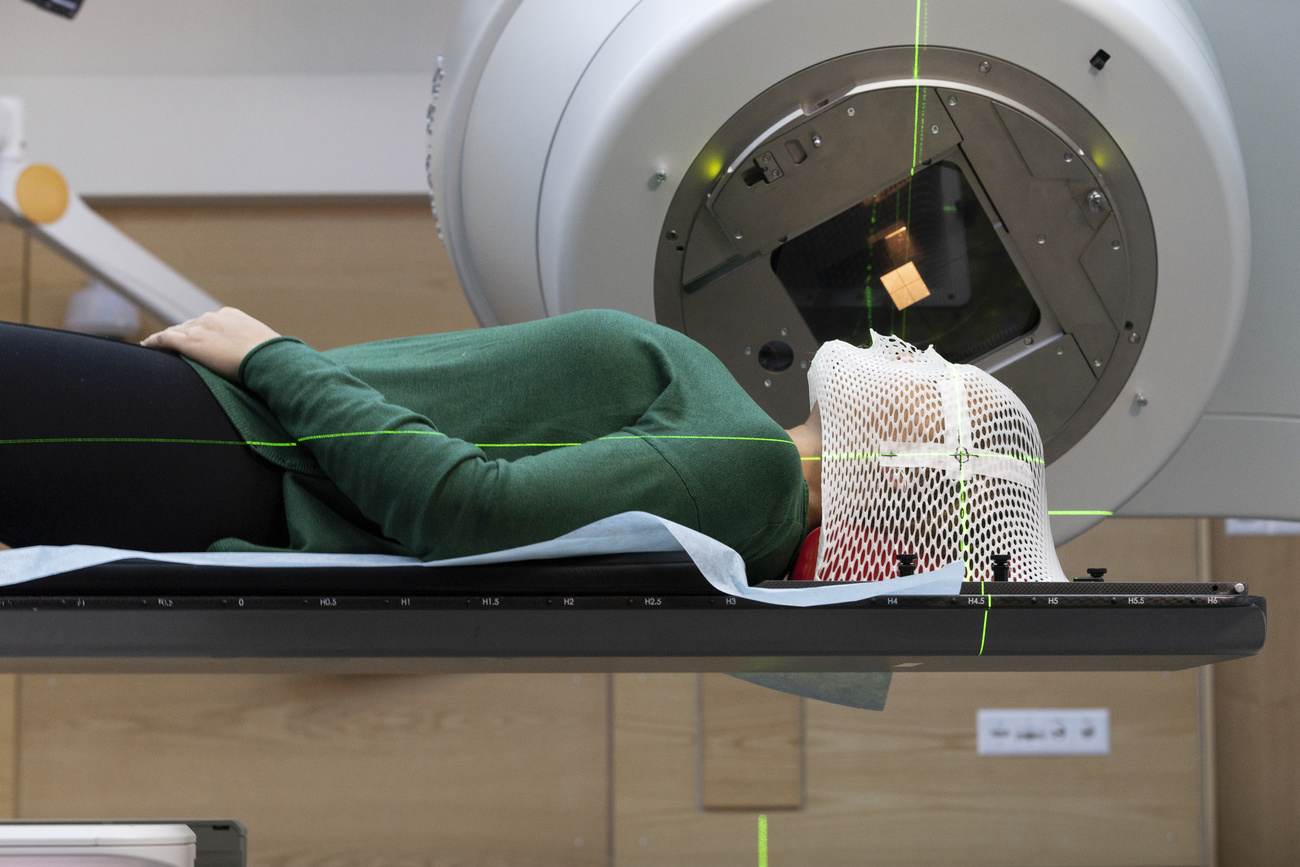
Heart disease and cancer were most common killers in Switzerland in 2023

Heart disease remains the most important cause of death in Switzerland (28% of deaths in 2023), ahead of cancer (24%).
+Get the most important news from Switzerland in your inbox
These diseases were followed by dementia (9%), respiratory diseases (7%) and external causes such as accidents and acts of violence (6%), according to figures published on Monday by the Federal Statistical Office (FSO).
For the first time since 2020, Covid-19 (2%) was no longer among the five most frequent causes of death. In 2023, Covid caused the deaths of 744 men and 613 women. The mortality rates (9 men per 100,000 and 5 women per 100,000) have fallen by more than two-thirds compared with 2022: by 67.9% for men and 69.4% for women.
+ Why Switzerland boasts one of the world’s highest life expectancies
In total, 71,822 people in Switzerland died last year. Of these, 35,109 were men and 36,713 were women, dying at an average age of 77 and 83, respectively. Compared with 2019, i.e. before the start of the pandemic, the mortality rate has fallen by 3.1% among men and 5.1% among women. The data showed that by 2023 the risk of death among the Swiss population had returned to its pre-pandemic downward trend.

More
More Swiss are getting cancer, but fewer are dying from it
Among cancers, lung cancer was the most frequent cause of death. It accounted for 19.1% of cancer deaths in men and 17.4% in women. This was followed by prostate cancer in men (15.1%) and breast cancer in women (16.8%).
A total of 2,451 men and 1,839 women died due to external causes, such as accidents, acts of violence and suicide. These were the main causes of death in the 15-44 age group, accounting for 49.5% of all deaths in men and 34.2% in women.
Suicides up slightly
In 2023, 721 men and 274 women committed suicide, according to FSO data, with an average age of 56 and 52, respectively. Compared with 2022, the suicide rate rose by 3.1% among men (13 per 100,000) and by 3.9% among women (5 per 100,000).
+ Is Switzerland a good place for the terminally ill?
The number of assisted suicides rose, as in previous years. There were 693 assisted suicides among men and 1,036 among women, with an average age of 78 and 80, respectively. These figures correspond to an increase of 44 cases among men (6.8%) and 91 among women (9.6%).
Translated from French by DeepL/sb
This news story has been written and carefully fact-checked by an external editorial team. At SWI swissinfo.ch we select the most relevant news for an international audience and use automatic translation tools such as DeepL to translate it into English. Providing you with automatically translated news gives us the time to write more in-depth articles.
If you want to know more about how we work, have a look here, if you want to learn more about how we use technology, click here, and if you have feedback on this news story please write to english@swissinfo.ch.

In compliance with the JTI standards
More: SWI swissinfo.ch certified by the Journalism Trust Initiative




























You can find an overview of ongoing debates with our journalists here . Please join us!
If you want to start a conversation about a topic raised in this article or want to report factual errors, email us at english@swissinfo.ch.